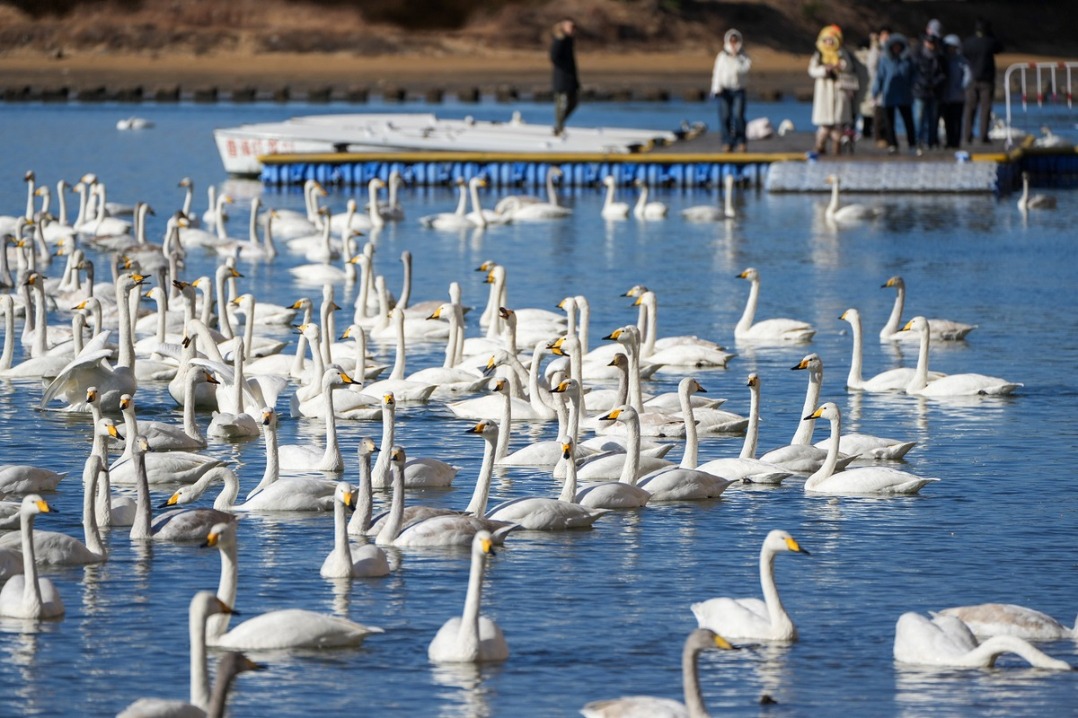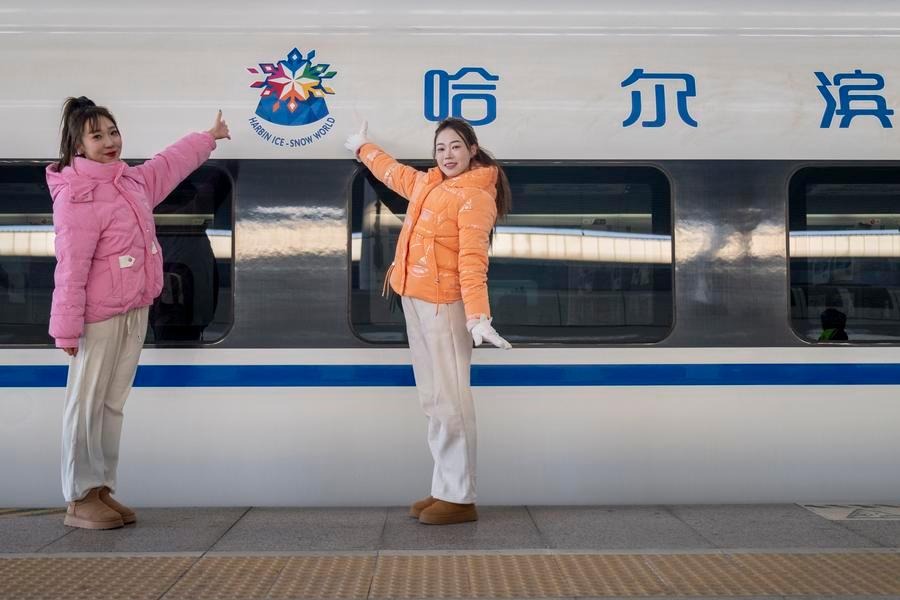Two sessions, three key topics: Poverty, pollution, security

As the two sessions - the annual gatherings of the country's top legislative and advisory bodies - proceed, it's good to see where the country has come from in the 40 years since opening-up became a national policy.
In 1978, China's GDP was just shy of 368 billion yuan ($58 billion), and just four decades later, it's over 82.7 trillion yuan - a 225-fold surge.
And in terms of global ranking, over the past four decades, China's GDP notch on the economic totem pole has soared - ratcheting up from an "alsoran" position to No 2. In short, someone is doing something right.
But that is no excuse to rest - not a habit of successful nations. For that reason, the country's leadership continues to raise the nation's key performance indicators, and the two sessions will likely be no exception to this trend.
On a happy note, the five "happiness industries" - namely tourism, culture, sports, health and eldercare - are expected to garner particularly thorough attention, given their deep and direct impact on the well-being of the citizenry.
But when the country's top leadership gets down to brass tacks, there will likely be a great deal of brainstorming and best-practice methodologies exchanged in three broad areas: poverty eradication, renewable energy and domestic security.
Moving from distant double digits to second place on the global GDP list by definition means that hundreds of millions have been able to climb out of economic hardship in just four decades - which translates into 0.8 percent of the Middle Kingdom's five millennia history.
But it remains an ongoing struggle to look after over 1.3 billion-plus citizens as best as one can. So to that end, China has earmarked 2020 as the target year to complete the building of a "moderately prosperous society" and to eradicate extreme poverty.
In the past weeks, one could see many examples of innovation of a nontraditional type, such as nonscientific innovation providing a helping hand to the country's most economically distressed regions.
Some of these include agritourism projects, especially in farming communities that have either been gutted of their young field-based workforce by the country's ongoing urbanization or various environmental degradation issues that take a major bite out of farmland productivity and harvest output.
Especially successful of late have been several instances in which both agritourism and cultural showcasing have been mixed.
This not only allows outsiders visiting these rural regions to try their hand at picking grapes, milling grain or, perhaps, testing the greenness of their thumbs in fields and hothouses, but also gives agritourists a front-row seat to cultural festivals native to the regions they visit.
This not only has the benefit of providing gainful employment for the "left-behind" farmers to make a living away from the fields, but also works to ensure the propagation of village traditions and cultural attractions.
Clever cultural innovations like these will likely be a hot topic during the two sessions, mainly due to the benefits they bring to underdeveloped rural regions.
This leads into the second category of discussions, which will surely occupy a fair deal of time for two sessions participants: Renewable energy.
There is a link between boosting the welfare of China's rural population and renewable energy. It's that the country's chronic pollution problem often hits farmers particularly hard, especially when the soil and water table are tainted.
Bluer skies often lead to greener fields, and the country's ongoing - though sometimes messy - divorce from an overreliance on coal-fueled power plants to emissions-free alternatives like solar, wind and hydro power all bode well for a rejuvenation of the country's overstressed croplands.
In addition, many of the country's seemingly endless fields of wind rotors are located in the fields themselves ... thus providing both cash compensation and employment for local farmers.
Look to environmental issues being a hot topic as well.
Finally, domestic security is always a concern. But having just wound up the Chinese New Year, the fact that there were no major incidents outbound or homebound, attests to the brevity of this section.
Needless to say, those in charge cannot afford to let their guard down, especially at venues where large crowds gather, so the subject will also get attention at the two sessions.
Contact the writer at andrew@chinadaily.com.cn
- Xizang's highway network grows to 125,200 kilometers
- Newborn's finger severed at hospital, sparking public concern
- Over 6,000 migratory whooper swans flock to E China's Rongcheng to spend winter
- Geospatial info sector growing rapidly
- SPC decries child abuse by families
- Senior official highlights ideological guarantee, spiritual strength for Chinese modernization





































